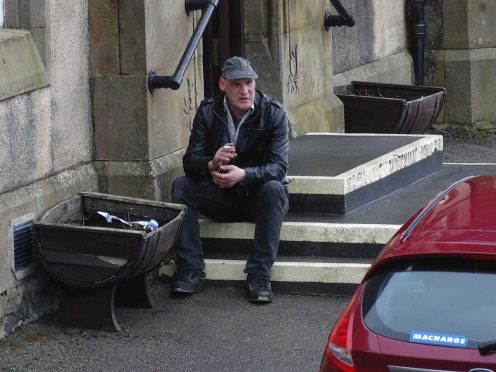The case against a Barra man accused of severely injuring his friend was yesterday found not proven following a three-day jury trial.
Fisherman John Christie, 31, denied spraying a flammable substance on Iain Gillies’s head and body, then igniting the substance, burning him to his severe injury and permanent disfigurement in June 2014.
Lochmaddy Sheriff Court heard how Mr Gillies was said to have downed nearly one litre of whisky – but if he had been fully conscious and sober he would have suffered a lot of pain.
He was airlifted from Castlebay to Glasgow Royal Infirmary for weeks of treatment.
Earlier in the trial, defence lawyer Neil Allan insisted there was “very considerable doubt” against Christie who aided Mr Gillies by “calling for helping and treating his burns”.
Christie offering to “take the blame” was not an admission of actually doing a wrongful act, he said.
He pointed out six aerosol canisters were recovered and the jury was asked to believe one of them was used in the incident yet none were tested to see if they were full or empty.
Neither was there evidence that Christie had touched any of the cans.
The lawyer asked if “some bizarre accident” could be an explanation rather than blaming Christie.
This was a “particularly sadistic assault” on an “inebriated and vulnerable” man, stressed procurator fiscal Karen Smith.
The victim was unhurt when he arrived at the house in St Brendan’s Road, Castlebay but left in an ambulance with “severe injuries” after being burnt with a naked flame which burned and charred his skin.
“The only scenario consistent with all the evidence points to John Christie,” said the fiscal.
“Thomas Barber observed a big ball of flames when Christie had a can of deodorant spray and a lighter next to Mr Gillies,” she said.
Ms Smith told the jury: “You saw the scarring on his body – he is permanently disfigured.”
Earlier, 49-year-old Mr Gillies gave evidence saying he could not remember what happened.
He had memory problems following a motorbike crash, he said.
He told the fiscal: “I remember going into the house – after that it’s a blank.”
He was “OK” when he arrived but “seemingly not OK” when he left, he said.
The jury of eleven woman and four men took about an hour to reach a verdict of not proven.
